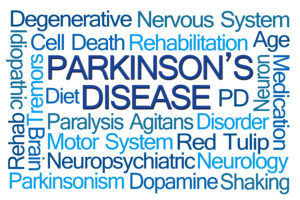How Seniors Can Manage Parkinson’s Symptoms With In-Home Care

Parkinson’s is an incurable and progressive nerve disorder that affects seniors. Parkinson’s is the second most common neurodegenerative disease. And there are more than a million seniors living with Parkinson’s in the United States.
Many seniors think that if they are diagnosed with Parkinson’s they won’t be able to live independently anymore. But with in-home care seniors can often continue living at home where they want to be. In-home care can help seniors at any stage of Parkinson’s continue to do the things they enjoy and be safe at home. Some of the ways that seniors can manage their Parkinson’s symptoms at home with help from in-home care are:
Helping Seniors Manage Medication
Seniors need to strictly adhere to the medication regimen recommended by their doctor. Taking medication properly is essential for managing Parkinson’s symptoms. In-home care providers can keep medication logs, organize pills, get refills, and make sure seniors are taking their medications on time.
Getting Regular Exercise
Physical activity plays a crucial role in managing Parkinson’s symptoms. Engaging in regular exercise, such as walking, swimming, or yoga, can help improve balance, flexibility, and overall mobility. Exercise can also boost mood and provide a sense of accomplishment.
Engaging In Occupational Therapy
Seniors with Parkinson’s can benefit from working with an occupational therapist. These therapists can recommend assistive devices and techniques to help seniors maintain independence in daily activities, such as dressing, cooking, and bathing.
Practicing Speech Therapy
Parkinson’s disease can affect speech and communication. Speech therapy can be beneficial for seniors to improve speech clarity, swallowing function, and overall communication skills.
Focusing On Good Nutrition and Hydration
A balanced and nutritious diet is vital for seniors with Parkinson’s. Ensuring an adequate intake of vitamins, minerals, and fiber can support overall health. Drinking plenty of water is also essential to prevent dehydration, which can worsen Parkinson’s symptoms.
Fall Prevention
Seniors with Parkinson’s are at a higher risk of falls due to balance issues and motor symptoms. Home modifications, such as installing grab bars and removing tripping hazards, can help prevent falls and improve safety. In-home care providers can help seniors get around the house safely, bathe, get dressed, and avoid falling while doing everyday tasks.
Deep Breathing and Relaxation Techniques
Stress and anxiety can worsen Parkinson’s symptoms. Practicing deep breathing and relaxation techniques, such as meditation or yoga, can help seniors manage stress and promote a sense of calm. With in-home care seniors will have encouragement and motivation to practice relaxation techniques.
Getting Restful Sleep
Getting adequate and restful sleep is essential for managing Parkinson’s symptoms. Seniors should establish a consistent sleep schedule, create a relaxing bedtime routine, and ensure their sleep environment is comfortable and conducive to sleep.
Upgrading Home Safety
Ensuring a safe home environment is critical for seniors with Parkinson’s. In-home care providers can suggest safety upgrades and perform a home safety assessment. They can also remove clutter, improve lighting, and consider using assistive devices to make daily tasks safer and more manageable.
Emotional Support: Emotional support from family, friends, or a mental health professional can be invaluable for seniors managing Parkinson’s symptoms at home. Having a support network can provide encouragement and motivation to cope with the challenges of the disease.
If you or an aging loved one are considering in-home care in Colts Neck, NJ, please contact the caring staff at Lares Home Care 888-492-3538 or 732-566-1112.
Source 1 / Source 2 / Source 3
